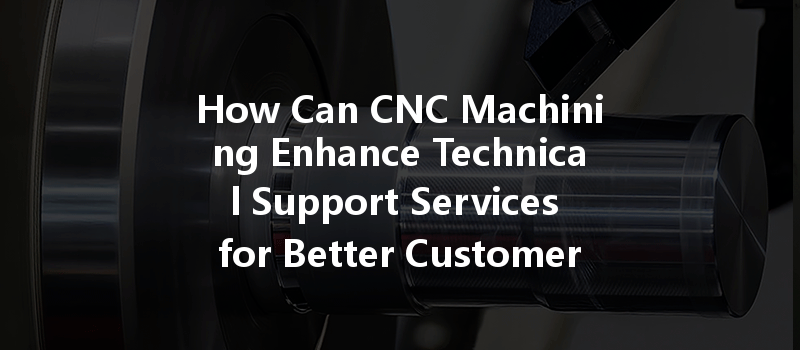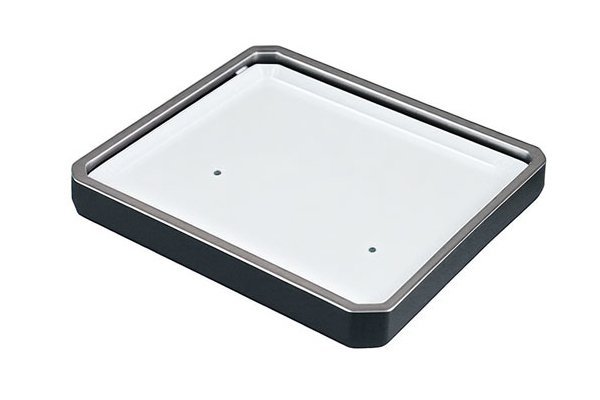Did you know that over 70% of customers expect companies to understand their needs and provide timely assistance? In today’s competitive market, along with product quality, customer service has become a pivotal factor in retaining clients. As industries continue to embrace automation and technology, Computer Numerical Control (CNC) machining has emerged as a powerful ally not only in manufacturing but also in enhancing technical support services. In this blog, we will explore how CNC machining can significantly improve technical support services and, in turn, boost customer satisfaction.
—
1.1 Definition and Overview
CNC machining is a manufacturing process that utilizes computer-controlled tools to create intricate parts and components. From milling and turning to laser cutting, CNC technology allows for precision, repeatability, and complex designs that were impractical with traditional machining methods.
1.2 Applications in Various Industries
The versatility of CNC machining spans numerous industries including aerospace, automotive, medical devices, electronics, and more. Each sector has its unique requirements, but all demand high-quality, accurately manufactured parts. This need points to the intrinsic link between CNC machining and the provision of technical support services.
2.1 Definition of Technical Support Services
Technical support services refer to the assistance offered by companies to help customers resolve technical issues with products or services. This includes troubleshooting, maintenance, and repair services, often necessitating a deep understanding of the product’s components.
2.2 Importance of Technical Support in Business
Effective technical support is crucial for customer retention and satisfaction. In fact, studies show that businesses that prioritize customer support experience higher customer loyalty and increased revenues. However, the efficiency and effectiveness of technical support often hinge on the availability of quality parts, which is where CNC machining plays a vital role.

3.1 Precise Manufacturing and Components Availability
CNC machining allows for high-precision manufacturing of replacement parts and components, ensuring that technical support teams have quick access to the necessary items required for repairs or maintenance. This precision minimizes errors and delays, leading to faster resolution times for customers.
3.2 Quick Turnaround Times
In the fast-paced world of customer service, timing is everything. CNC machining processes are highly efficient, enabling companies to produce parts quickly. By reducing lead times, companies can ensure that technical support services are not hindered by the unavailability of crucial components.
3.3 Prototyping Capabilities
CNC machining allows businesses to create prototypes rapidly. This capability is essential for technical support teams as it enables them to troubleshoot and solve issues proactively. By testing different versions of parts, companies can find optimized solutions to customer problems more efficiently.
3.4 Customization and Adaptability
One of the major advantages of CNC machining is its ability to produce customized parts. Technical support teams often encounter unique customer requirements or unforeseen issues. CNC machining supports the rapid development of bespoke solutions tailored to specific needs, enhancing the ability to solve problems effectively.
4.1 Case Study: Aerospace Industry
In the aerospace industry, where safety and precision are paramount, a leading firm implemented CNC machining to produce spare parts for aircraft maintenance. By having a dedicated CNC machining facility, the company reduced its turnaround time for component delivery by 60%, leading to significantly improved technical support for clients. As a result, customer satisfaction increased, and the firm gained reputation for reliability in the market.
4.2 Case Study: Automotive Sector
An automotive manufacturer faced challenges with providing timely technical support for its vehicles. By utilizing CNC machining, they could quickly produce replacement parts for various models. This significantly reduced the downtime experienced by customers needing replacement parts, thus enhancing customer loyalty and satisfaction.
5.1 Implementing CNC Machining in Support Operations
To optimize technical support, companies can integrate CNC machining into their support operations by establishing dedicated facilities or partnering with CNC machining service providers.
5.2 Training Staff and Technicians
Investing in training for technical support staff and technicians on CNC machining processes will help them understand the technical details of the products they support. This knowledge can lead to quicker and more effective troubleshooting.
5.3 Integrating CNC Technology with Customer Management Systems
Integrating CNC technology with Customer Relationship Management (CRM) systems allows for better tracking of customer needs and order statuses. This integration ensures that technical support teams have access to up-to-date information, enhancing their ability to serve customers effectively.
6.1 Identifying Common Technical Support Challenges
Some common challenges faced in technical support include delayed response times, lack of product knowledge among support staff, and difficulty in sourcing components.
6.2 Solutions through CNC Machining
CNC machining addresses these challenges by providing quick access to parts, reducing lead times, and empowering support teams with the knowledge and resources they need to offer excellent service.
7.1 Continuous Improvement
Embracing a culture of continuous improvement helps businesses stay ahead. Regularly evaluating and upgrading CNC machining processes will yield better results and enhance the quality of technical support.
7.2 Feedback Loops
Establishing feedback loops between customers and technical support teams can identify areas that require improvement and allow for fine-tuning of CNC machining approaches.
7.3 Embracing Innovation
Keeping abreast of the latest technological advancements in CNC machining will provide businesses with innovative solutions that can further enhance their technical support services.
8.1 Advances in CNC Technology
The future of CNC machining looks bright with advancements in automation, AI integration, and IoT, which will significantly improve manufacturing processes and the capabilities of technical support teams.
8.2 Predictions for 2030 and Beyond
As companies increasingly rely on efficient workflows, tailored customer experiences, and agile support systems, we can expect CNC machining to evolve in tandem with these demands. By 2030, businesses that effectively leverage CNC technologies alongside robust technical support frameworks will vastly outperform competitors struggling with old paradigms.
In conclusion, the advantages of incorporating CNC machining into technical support services are profound. By ensuring precise manufacturing, quick turnaround times, and the capability for customization, CNC machining sets the stage for enhanced customer satisfaction. Understanding these synergies not only helps in streamlining operations but also positions your company competitively in today’s fast-paced business landscape.
As you rethink your approach to technical support, consider the pivotal role that CNC machining can play – because in the end, happy customers equal a thriving business. Embracing these strategies today will lay the groundwork for success tomorrow.






